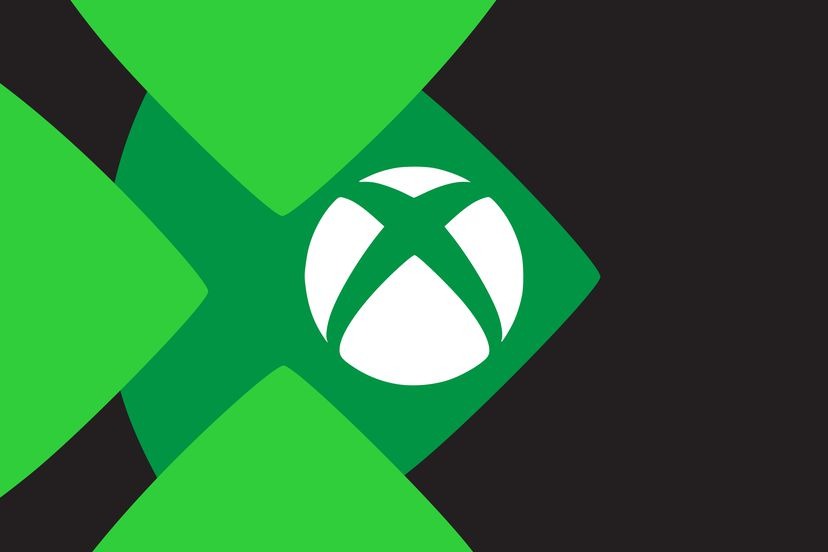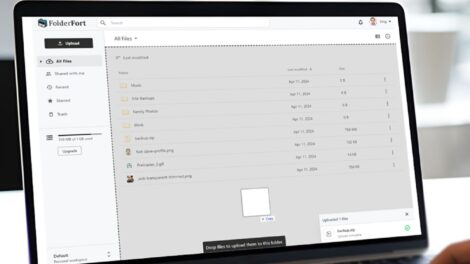Microsoft recently announced a controversial new initiative – starting November 12, 2023, the company will begin blocking all unauthorized, unlicensed Xbox controllers from working on Xbox consoles. This sweeping change aims to improve reliability and protect intellectual property, but also stands to disrupt many gamers’ controller setups.
Let’s explore Microsoft’s motivations for blocking third-party Xbox controllers, which specific devices will be affected, how gamers can prepare, and the larger implications of this policy shift for the future of Xbox accessories.
Why Is Microsoft Blocking Third-Party Xbox Controllers?
Microsoft’s stated rationale for preventing unsupported Xbox controllers is based on two main factors:
Maintaining Quality Standards
Microsoft contends that unauthorized controllers can introduce technical issues like system crashes due to incompatible drivers or hardware flaws. By only allowing licensed controllers, Microsoft aims to protect the gaming experience.
Curbing Intellectual Property (IP) Violations
Limiting controller support exclusively to licensed partners helps Microsoft battle IP theft and patent infringement. Bootleg controllers allegedly copying Microsoft innovations would find no home on Xbox.
Additionally, while not an official justification, blocking third-party controllers should incentivize Xbox gamers to purchase licensed controllers, potentially increasing Microsoft’s hardware revenue.
Yet despite these logical business reasons, the move remains controversial given Microsoft previously allowed third-party support. The sudden shift is catching some gamers off guard.
Which Xbox Controllers Will Be Blocked?
Microsoft indicated that any Xbox controller without an official Xbox license will be non-functional starting November 12. But which brands and specific devices are affected?
Major Brands Impacted
Some major third-party controller brands lacking licenses will face blocks, including:
- Scuf Gaming (popular esports controller maker)
- Razer (known for high-end gaming peripherals)
- PowerA (makes affordable Xbox controllers)
Individual Devices Affected
Beyond these brands, common unlicensed controllers getting blocked include:
- Pro-modifier controllers adding buttons/switches
- Custom/boutique artisan controllers
- Controllers made for accessibility needs
- Adapters enabling other input devices
- Modified controllers like 3D-printed designs
Even cheap controllers users buy to add an extra input option face getting shut out.
Identifying an Xbox Licensed Controller
With this wide range of controllers set to be disabled, how can gamers identify which devices will continue working after November?
Presence of Official Xbox Logos
The clearest indicator a controller will remain enabled is the presence of Xbox branding, usually seen on the front center or other prominent location. This signifies an official license.
1st Party Microsoft Controllers
Xbox controllers made directly by Microsoft, like the core Xbox Wireless Controllers, Elite models, and Adaptive Controller, will not face any restrictions due to being produced in partnership with the Xbox team.
Select Partners With Official Deals
Major third-party controller partners explicitly licensed by Microsoft, such as those making officially co-branded products, are expected to be exempt from blocks. However, the specific partners have not been publicly defined.
Gamers who are unsure if their third-party controller will be affected should contact the manufacturer directly to confirm licensing status before November.
Steps Gamers Can Take Before the Deadline
For Xbox gamers currently enjoying unofficial controllers that will soon be obsolete, there are some preparatory steps to take before the functionality cutoff on November 12:
- Research long-term controller options that meet your needs from officially authorized partners.
- If required for accessibility, petition Microsoft to exempt your device from the policy.
- Stock up on spare generic controllers as cheap fallback options.
- Save for 1st party Microsoft controller upgrades to replace unsupported ones.
- Sell or gift unsupported controllers to other gamers on platforms like eBay pre-deadline.
- For modded/custom controllers, reuse components like buttons in new licensed builds.
- Document controller customization profiles before migrating to new setups.
Taking proactive steps now allows smoothly transitioning to supported controllers before unauthorized ones are rendered inert.
How Xbox Gamers Are Reacting to the Controversial Policy
Given many Xbox owners have used third-party controllers for years without issue, the community reaction to this abrupt policy shift is unsurprisingly contentious. Some sample responses across social media:
Positive Sentiment
- “About time Microsoft took control of the ecosystem from low-quality accessories.”
- “This raises the bar for controller quality and safety.”
- “Should stop cheap knockoff accessories from damaging Xbox reputation.”
- “Happy to buy an authorized controller to protect my console.”
Negative Sentiment
- “Microsoft is just greedy and wants everyone buying their expensive controllers.”
- “I’ll have to relearn muscle memory on new controllers, ugh.”
- “They don’t care how much our custom/inaccessible controllers cost.”
- “It’s unfair to suddenly brick good controllers that worked fine before.”
- “They should AT LEAST give us compensation for useless controllers.”
The polarizing reactions reflect how the move resonates positively with some gamers but represents a costly disruption for many others dependent on now-incompatible accessories.
Does This Point Toward an Xbox Walled Garden Ecosystem?
Stepping back, the controller lockdown provides another data point towards Microsoft shifting Xbox increasingly towards a more closed, controlled ecosystem like Apple. Other examples include:
- Proprietary Xbox Storage Cards – Required for Series X|S games
- Limited Headset Support – Official Xbox headsets required for 3D spatial sound
- Restrictions on Game Pass Sharing – Discouraging account sharing to grow individual subscriptions
- Xbox OS Limitations – Inability to sideload apps or customize the Xbox UI
When taken together with the controller policy, these limitations paint a picture of Microsoft moving toward an Xbox ecosystem with less flexibility and customization than in the past. The tradeoffs for users are simplicity and reliability in exchange for restrictions.
Gamers grow concerned this could lead to scenarios where Microsoft limits features or requires official accessories to extract more revenue from the audience. So far Microsoft has trodden carefully, but the controller policy demonstrates the company’s willingness to exercise more oversight.
The counterargument is Apple’s walled garden results in positive outcomes like strong privacy protections, consistent user experiences, and premium system-wide integration. However, the console and PC gaming markets have long provided more openness for user control, making attempts to close ecosystems off feel more jarring.
In the end, Microsoft faces the difficult balancing act of providing guardrails without making the Xbox platform feel overly restrictive. How gamers respond to the controller policy could shape Microsoft’s future accessory and customization decisions.
What Does This Move Mean for Xbox’s Future?
Predicting the long-term implications of Microsoft severely limiting controller support requires reading tea leaves. Here are 3 potential repercussions:
1. Pushes More Controller Sales Through Official Channels
Reducing third-party choice theoretically grows demand for Microsoft’s own Xbox controllers, Elite models, and licensed partnerships. This compounds revenue.
2. Opens Door to Xbox Controller Royalties/Fees
Microsoft could charge brands for controller licensing to offset lost third-party sales. This would mirror Apple’s MFi program for iOS accessories, adding a lucrative revenue stream.
3. Sets Precedent for Future Accessory Restrictions
Blocking unauthorized controllers establishes habitat for extending limitations to other Xbox peripherals like headsets, charging docks, and more to capture profits and control.
Of course, Microsoft also risks gamer backlash if policies grow overly restrictive. For now, the company is betting that the controller lockdown will be accepted as improving overall user experience. But undoubtedly, it closely monitors sentiment and sales impact to gauge future accessor moves.
This controller saga illustrates the delicate balancing act platform holders like Microsoft face curating polished, profitable console ecosystems while avoiding the perception of excessive control. One thing is certain: Microsoft will monitor the controller policy’s reception closely when charting Xbox’s future direction.
The Bottom Line on the Xbox Controller Shutdown
For gamers reliant on specialty gamepads, Microsoft abruptly brickwalling unsupported Xbox controllers feels hostile. But Microsoft’s intentions – protecting Xbox’s integrity and business – are at least logical, if heavy-handed.
Until November 12, concerned players must choose between replacing unsupported controllers or pleading their case to Microsoft if special accommodations are legitimately required. Thankfully, first-party Xbox Wireless Controllers present affordable fallback options if third-party brands are compliance question marks.
This controversy makes one certainty clear: as Xbox evolves into a service-first platform, Microsoft is willing to make unpopular moves aligning the ecosystem with its long-term vision. While the company works to avoid completely eroding goodwill, more disruption could emerge if future accessory categories like headsets get restricted next.
For now, the controller cutoff represents another milestone in Microsoft’s delicate balancing act curating the Xbox experience. Gamers can only hope that this signals the start of a new gated garden rather than business as usual. But only time will tell whether Xbox’s future points toward more liberty or stronger corporate walls.
FAQ About the Xbox Controller Support Policy Change
Here are answers to some frequently asked questions about Microsoft’s upcoming block on unsupported Xbox controllers:
What happens if I don’t replace my controller before November 12?
Your unsupported controller will cease to function on Xbox consoles after November 12, 2023. You will need to purchase a licensed controller to play games.
Will unofficial controllers stop working immediately on November 12?
Yes, unsupported controllers will be entirely non-functional on November 12. Make sure to replace yours before then.
Can I continue using unauthorized controllers for PC gaming?
Yes, unsupported Xbox controllers should continue working on Windows PCs for gaming even after the Xbox console blockade goes into effect.
Will accessories like controller batteries and chargers be blocked too?
No, only the controllers themselves will be affected. Any batteries, chargers, cables, etc. for Xbox controllers will continue working regardless of licensing.
Can I get an exemption for medical or disability needs?
Microsoft hints formal exemptions may be possible in select accessibility scenarios. Reach out to Microsoft support to discuss your situation.
What about controllers with accessibility modifications added?
Unfortunately, any customized or modified controllers will also be blocked unless Microsoft formally grants a special exemption.
Will I get any monetary refund or credit for my disabled controller?
Microsoft currently is not offering any refunds, credits, or other compensation for unsupported controllers that will no longer function after November 12.
What happens if I buy a used unsupported controller after November 12?
The controller still will not work, as the blocking is permanent server-side. Only controllers manufactured with current licenses will function.
The Xbox controller support policy shift presents hurdles, but prepared gamers can adapt by November 12 to minimize disruption. Make sure your controller access is secured before unauthorized ones get cut off.










Add Comment